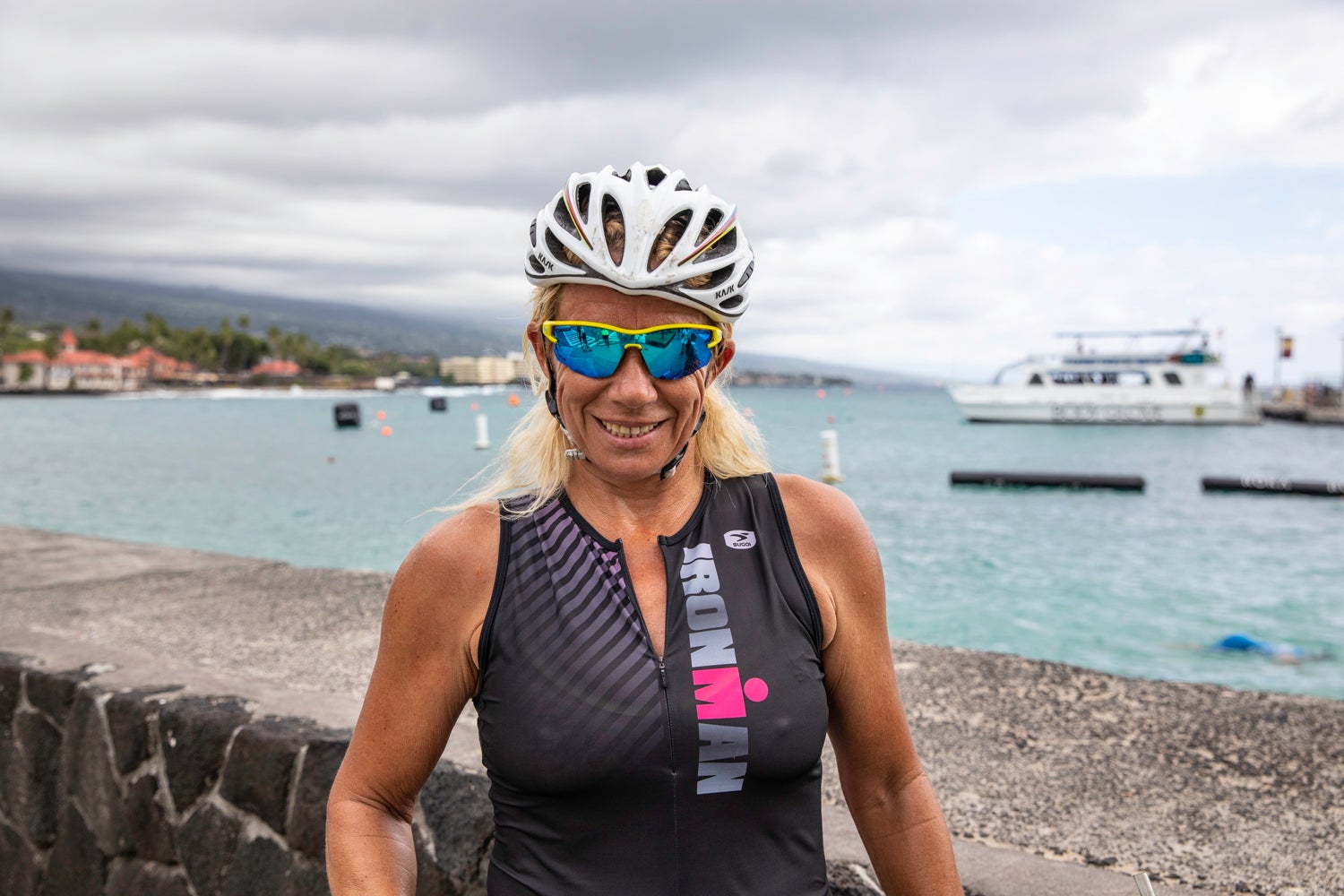This Greek Athlete Is Coming to Kona with a Message and a Plea

Mania-Maria Bikof. Photo: Corey Hollister
Ironman age-grouper Mania-Maria Bikof’s trip to Kona from Greece was long, and it showed. The flight was well over 20 hours, and when I caught up with the 47-year-old the day after she landed on-island she was sleep deprived.
With a heavy Greek accent, she tells me she’s not yet acclimated: “I’m, how do you say, jet lagged?”
But there’s no doubt this athlete has the mental and physical fortitude to push through relatively minor biorhythm disruptions. Her full-time life since 2015 involves spearheading international volunteers who come to help her rescue thousands of refugees who’ve capsized in the Aegean Sea. It’s rewarding, dangerous, and gut-wrenching work. She’s plucked countless dead bodies from the waters off her country’s coastline, and she consoles desolate survivors who’ve lost everything due to conflict.
“It was very heavy, emotionally, in the early days. But now I see it’s my work, saving people,” explains the mother of four, who heads Lifeguard Hellas Save & Rescue Volunteer. In late 2015, Bikof and the volunteers were rescuing thousands a week from rickety, small, overcrowded and sinking boats. Many of those who flee come via Turkey with the costly “help” of human smugglers. The refugees believe (falsely) that Greece is a gateway to Europe. The influx continues today, Bikof says.
An excellent swimmer in her youth, Bikof trained at a U.S. military base in Greece to become a lifeguard, and she also was a member of Greece’s national women’s water polo team. For her work with refugees, she’s recently been nominated and shortlisted for the prestigious HERO award from the International Maritime Rescue Federation.
With her athletic background, she’s now competing in Ironman events to raise awareness for the refugees’ plight. All of her rescue work is funded via private donations, although she must stay in constant contact with her government regarding lives saved and bodies found.
“Triathlon keeps me strong mentally and physically, which I need in order to do this work,” Bikof says. Her rescue efforts are not without controversy. Only recently have Greeks begun to embrace the idea of volunteerism, she says, and many of her fellow citizens do not support her mission, especially given the country’s recent economic difficulties.
But Bikof is undeterred, and she sees the refugee problem as an international one. European Union-member countries have imposed restrictions on the number of refugees coming into their respective countries, as has have other nations, including the United States.
“This is a global crisis,” Bikof implores. “These people have nowhere to go.”
After our interview Tuesday evening, the rain begins falling hard over the Ironman Parade of Nations. As I duck into shops along Ali’i Drive to escape the deluge, I spot the contingent of Greek athletes. Bikof is dancing in the rain with her compatriots. Drenched, she appears suddenly reinvigorated—at home in the water.